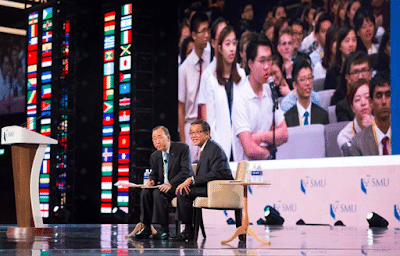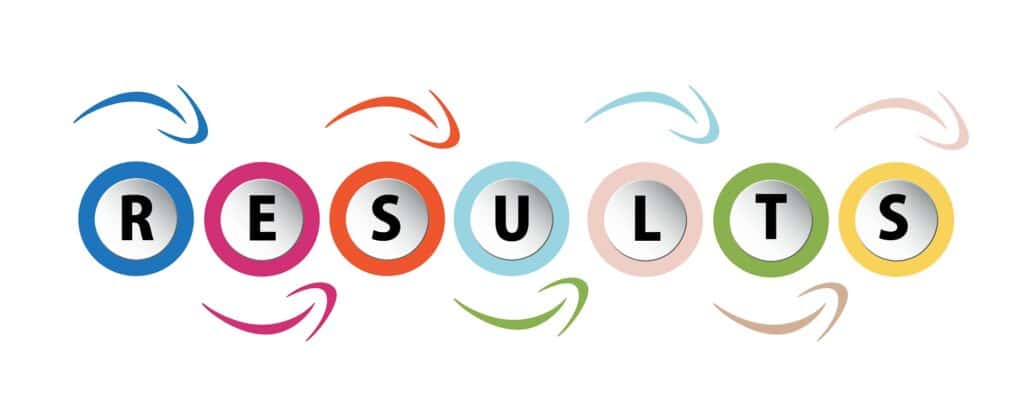Ban Ki-moon with UWCSEA and other students in Singapore this week: We should rejoice that what he said was so unremarkable.
This week we took 100 or so of our students to hear a lecture from Ban Ki-moon, UN Secretary General, when he was passing through Singapore. It was a fairly grand affair with some 3500 diplomats, business people, educators and students present.
I started off a bit underwhelmed and even, dare I say, a little bored. What, collaboration and tempering self-interest to make a more sustainable world? Gender equality and human rights as central? Climate change and human development as crucial issues? Educating young people to make a difference? Tell me something I don’t know!

|
| Our Students queuing to ask questions to Ban Ki-Moon and Ho Kwon Ping |
But then I realised that my irritation was misplaced; and I should have been delighted that what a few decades ago might have been called radical or perhaps naïve, has now become a mainstream political position. There’s a long way to go of course. The world is hardly on a certain path to solving all the problems, but the fact that at least some of our leaders are paying attention should be great cause for celebration. Here I mean celebration without complacency; and a further extremely encouraging sign was the many, many perceptive, morally driven and well-articulated questions that came from all the young people in the audience. The questions ranged from the situation in the Philippines and Human Rights, to the qualities that young people need to make a difference, to Security Council reform, to cultural relativism; and the energy, optimism and determination were inspiring, to me at least. There was a palpable sense of common purpose and shared values between so many people from so many organizations. I think we all felt we were part of a movement that was much bigger than ourselves.
Of course, hard and practical steps are needed, not just warm fuzzy feelings. Here again, I know others, including some fierce critics of Mr. Ban, felt the same, and so I am happy to end here with a few lines from one our grade 12 students, who shortly after the event wrote what comes next requires us to realise our inherent obligations and shared humanity – not only cultivating shared empathy but acting upon it. That is what will make all the difference.
I am reminded of the privilege and responsibility we educators have in playing a part in shaping the next generation so that they keep this determination to shape a better world.



1 Response
Thank you for this! Little do we realise what a blessing it is to be alive in the 21st century, and realise we have the ability to be catalysts for change.